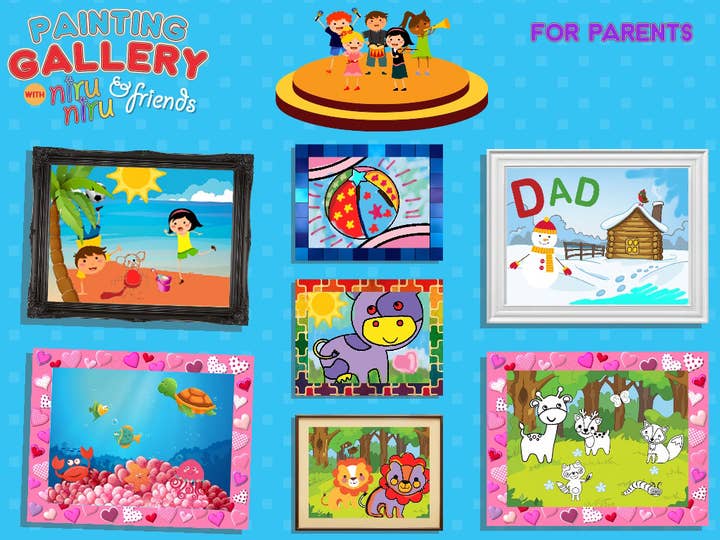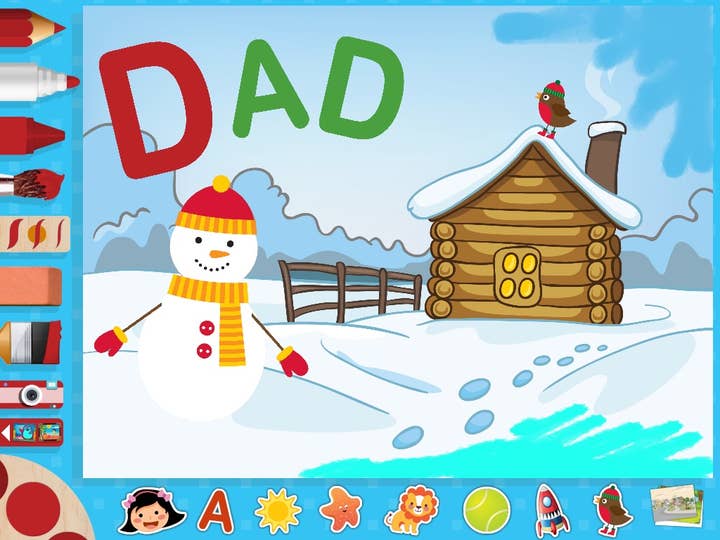"For kids' games, I think it's out of the question"
Joyful Works' Basar Simitci draws a line under free-to-play apps for children
After a period of some soul searching, and a degree of sometimes slightly reticent regulation, the industry seems to be settling on a decision about the monetisation of children. Whether you think it's a result of pragmatism or ethical nuance, Warner Bros.' recent explanation of an unwillingness to implement free-to-play mechanics in its LEGO mobile games is indicative of a wider shift in the way children's apps are treated: long term brand stability wins out over short-term gains.
Basar Simitci of Joyful Works agrees. However, for him it's not just an incidental decision or the result of regulatory pressure, but a cornerstone of his company's philosophy. He believes that children's apps should educate and entertain, not take advantage; that they should bring child and parent closer, not just give adults a break by acting as virtual babysitter. As far as he's concerned, it's not an area for compromise.
"For games generally, I'm not fundamentally against free-to-play," he explains when I ask him about his feelings on the model. "I mean, I don't hate or love it. But, for kids' games, I think it's out of the question. There are generally two things that are sold via in-app purchase. One is virtual goods, which is not appropriate for children because, for example, with things like in-game money, children don't have any sense for the value of that money. Virtual money even can confuse grown-up people so it's really out of the question right away. The other thing is selling additional content. I think in order for the publisher to be able to sell additional content, the developer has to be a little bit pushy about it, trying to make it visible. Again, in my opinion it's kind of on the edge of being too pushy and being a decent content provider. For me it's very simple to just have clean, upfront payments. This is much, much better than trying all these things in a kids' game."
It's an admirable moral stance, but it's not an entirely selfless one, Basar is still a businessman. In fact, he sees a gap in the market for a company which can present itself to parents as trustworthy, for games which will never try to nickel and dime a vulnerable young audience.
"I don't know if you can generate more money, with free-to-play for kids. I'm not sure about that. I believe we can make a name for ourselves - that we are a company that produces good quality products for children"
"I don't know if you can generate more money, with free-to-play for kids. I'm not sure about that. I believe we can make a name for ourselves - that we are a company that produces good quality products for children. I think that could bring us more money than trying to push people into buying additional content and stuff like that, because it's something that's frowned upon. Even though it's it's easier for people to download free stuff, in the long run I don't believe that it would bring in more money than this.
"Apple has acted on this. The changing of the wording is one thing. They also introduced the lists, the pay once and play. I think they also see an issue of sustaining goods regarding these games. In my point of view, I think this is initial of maturity of the players as well. I've played games since 1988. It's hard for me to get into mind-state of a person who just met video games for the first time. I believe when mobile devices came into people's lives and mobile games were first introduced to them, they had little experience to differentiate the games from one another.

"Now we come up with an issue of sustainability because free-to-play games tend to have similar kinds of mechanics where they for example offer daily rewards, they offer in-game virtual goods or in-game money. They tend to be similar because they have to have some mechanics supporting free-to-play gaming. I suppose I think Apple and other distribution channels will be similar as well in the near future. They somehow make other types of games discoverable so that their market is sustainable. Otherwise, when people get sick of playing the same things over and over again they could just move away from the markets completely."
Of course, discoverability is a can of worms all of its own. Simitci has a clear idea of what's acceptable in terms of monetising a young audience, but what about the greyer area of advertising? If you're selling premium games, then surely marketing is your everything?
"I think you have to market to the parents first. The children do not have control over the App Store"
"I think you have to market to the parents first," he says. "The children do not have control over the App Store. They don't use the App Store app. I have a daughter, and she doesn't use the App Store app. She can't. She's four now, and she doesn't know how to read it. Also, they don't have payment tools. Basically, first of all you have to catch the attention of parents. In order to do that being included on the App Store is one thing, but also I think you have to use other methods as well like reaching out to reputable media outlets like good, credible parenting blogs or media sites. Somehow you must build a name, a brand that presents itself as a good quality brand that brings you good quality products for children. It's the road that we are on right now, and I think step by step we are going to realize it."
If you're going to market to the adults, then you need to make them feel like they're going to enjoy it too. There's a good reason that so many of the most successful children's IPs include oblique adult humour or deeper levels of meaning not intended for the main audience: parent might dote on their kids, but they also want to be entertained. For Joyful, however, there's another factor - kids and parents should be playing together.

"When you're a parent sometimes you want some recess," says Simitci, with the slightly weary voice of experience. "Most people, most parents wouldn't feel guilty about it. 'Oh my child is just playing with the tablet over there by herself or he's not spoken it 15 minutes.' Yes, some parents tend to do that, but after a while they try to move away from that. In my view, I think it's important that parents can do something with their child together That's why these games tend to have an element that also tries to bring parent and child together for fun. For example, most parents would enjoy playing with LEGO or taking a child to see a movie like from Pixar. Most of the time you are entertained as well as a parent.
"The producers of children's products almost always have to think about this: have to think about how to incorporate the parent into the product somehow so they are also there. They are also enjoying the product with their children so that they can have their fine quality time together. That's basically the idea behind it. That's why for example in Painting Gallery, we have the option of voice recording so that parents can record his or her voices, and then the child while playing hears the parent's voice. It's a familiar voice and then they can laugh together or they could just record a silly voice or just something funny and then laugh about it together. That's quality time together with your child. You are playing a technological device and you don't have to be afraid about it."
Joyful Works first game, Painting Gallery with Niru Niru & Friends, is out now

